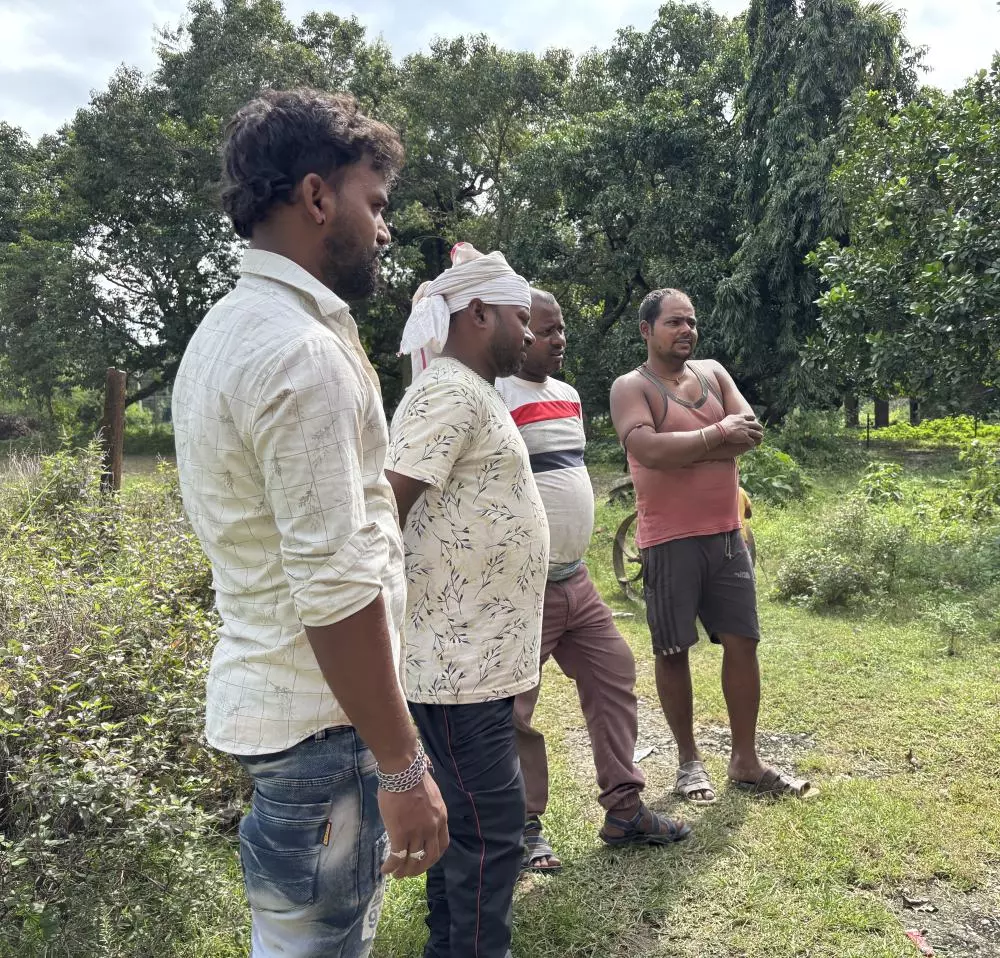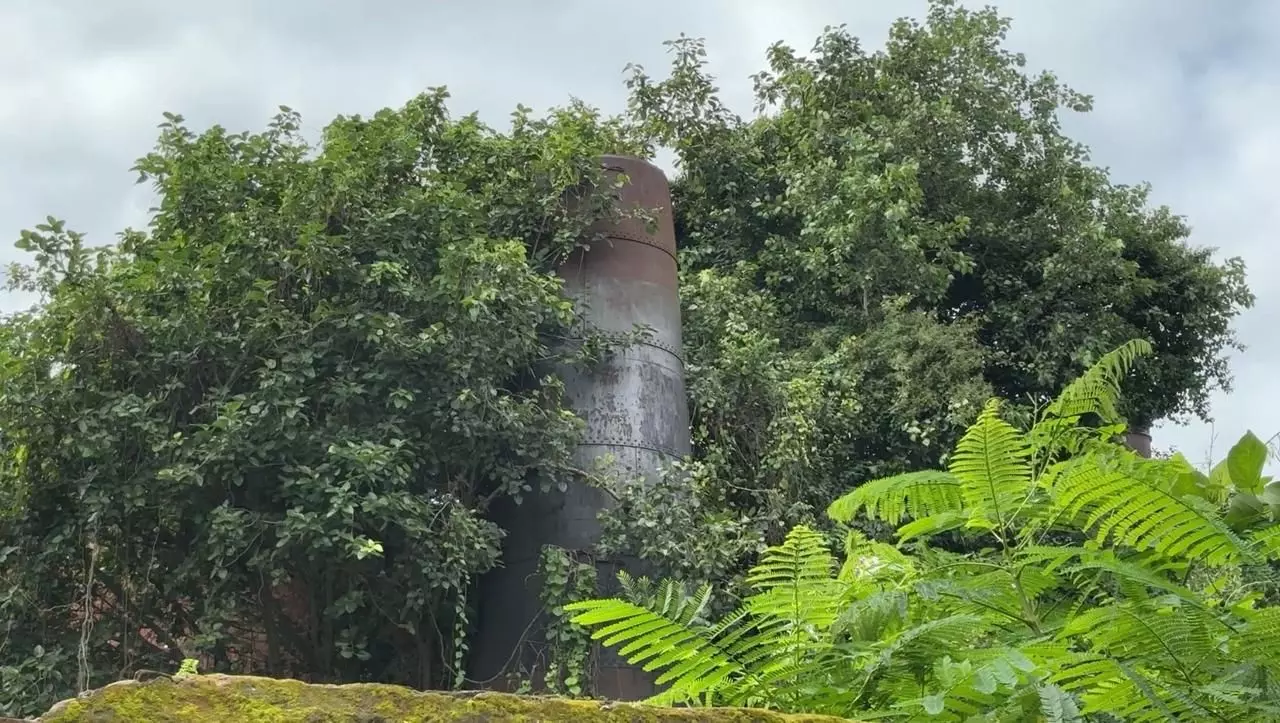
- Home
- India
- World
- Premium
- THE FEDERAL SPECIAL
- Analysis
- States
- Perspective
- Videos
- Sports
- Education
- Entertainment
- Elections
- Features
- Health
- Business
- Series
- In memoriam: Sheikh Mujibur Rahman
- Bishnoi's Men
- NEET TANGLE
- Economy Series
- Earth Day
- Kashmir’s Frozen Turbulence
- India@75
- The legend of Ramjanmabhoomi
- Liberalisation@30
- How to tame a dragon
- Celebrating biodiversity
- Farm Matters
- 50 days of solitude
- Bringing Migrants Home
- Budget 2020
- Jharkhand Votes
- The Federal Investigates
- The Federal Impact
- Vanishing Sand
- Gandhi @ 150
- Andhra Today
- Field report
- Operation Gulmarg
- Pandemic @1 Mn in India
- The Federal Year-End
- The Zero Year
- Science
- Brand studio
- Newsletter
- Elections 2024
- Events
Why Bihar's Sakri residents are doubting Amit Shah’s promise of reopening state's sugar mills
The Sakri Sugar Mill, one of many in Bihar that closed in the '90s, provided a livelihood not just for workers, but also farmers supplying sugarcane to it. Many locals have since migrated in search of jobs. Years of disappointment have made them wary of expecting a return of good fortune.

Grey-haired Kishori Ram was busy cutting grass outside the locked gates of a mill where he had once worked in Darbhanga, Bihar. A gamchha (cloth towel) was tied around his head, offering protection from the October Sun. A letter from Patna, announcing the lockdown of the mill in 1997, had changed his life forever, and according to him, the lives of about 1,500 other families who had depended...
Grey-haired Kishori Ram was busy cutting grass outside the locked gates of a mill where he had once worked in Darbhanga, Bihar. A gamchha (cloth towel) was tied around his head, offering protection from the October Sun. A letter from Patna, announcing the lockdown of the mill in 1997, had changed his life forever, and according to him, the lives of about 1,500 other families who had depended on the Sakri Sugar Mill for their livelihood.
After the mill was closed, Kishori received compensation of Rs 1.03 lakh, paid in three installments. But how long could Rs 1.03 lakh last? Kishori Ram took to rearing animals to earn a livelihood.
Now in his seventies, he recalled the heydays of the mill, when it had not only provided jobs to the local youth — he himself had joined the mill in 1982 — but also helped farmers in the area, from whom the mill would source sugarcane, to prosper. “Even those in the transportation business flourished, carrying sugarcane to the mill and the processed sugar from there for distribution,” he reminisced. It was a boon for everyone in the area.
Also read: Why in Bihar’s Biswak, a Kashmiri sultan’s grave remains forgotten and neglected
Sakri, a panchayat in the Madhubani district of Bihar’s Darbhanga sector, has a primarily agrarian economy. Since the lockdown of the mill, locals claim many from the area have had to migrate in search of a livelihood, with those left at home dependent on the money they send.
Speaking at a public meeting ahead of the just-concluded assembly elections in Bihar, Union home minister Amit Shah had promised that the sugar mills that have remained closed in Bihar for years would be reopened. “I am here to tell the people of Bihar that all the sugar mills that are currently closed will be reopened within the next five years to bring prosperity to the lives of farmers,” Shah was reported as saying.
According to reports, in the 1980s, Bihar contributed about 30 per cent of the total sugar produced in India; the figure is now purportedly down to approximately six per cent. The reports also suggest that the state had 33 operational sugar mills before independence. However, the state government began acquiring the till-then privately-owned mills in the 1970s-80s. However, the mills started closing soon after, during the ‘90s — a period when Lalu Prasad Yadav was Bihar chief minister. According to data from the Sugarcane Industries Department of Bihar, at present only nine sugar mills are operating in Bihar, primarily located in the districts of West Champaran, East Champaran, Gopalganj and Samastipur.
One of the mills to have been acquired by the state government and eventually closed down was the Sakri Sugar Mill in Darbhanga. Established in 1933 by Maharaja Kameshwar Singh of Darbhanga, the mill is remembered by locals as a symbol of Mithilanchal’s (Darbhanga is a part of Bihar’s Mithila region) “golden era”. The Darbhanga Raj (or kingdom) was credited with having established seven factories in the Mithila region during that time. However, the Sakri Sugar Mill was later acquired by the state government and eventually closed down.

Kishori Ram, a former employee at the sugar mill. Photo: Nadim Ahmed
Now, the likelihood of its reopening seems too good to be true to locals who have become used to youth from the region migrating outside the state in search of jobs. Studies have shown that the inclination to migrate for employment among males in Bihar is approximately twice that of the national average — 55 per cent against the national average of 24 per cent. According to the paper “Poverty, Migration and Development in rural Bihar” by Dr Amrita Datta, the percentage of households with migrants in Bihar increased from 45 per cent in 1999 to 62 per cent in 2011 stabilising to 65 per cent in 2016.
Also read: Beloved, but lacking opportunities: How Biharis outside Bihar view their home state
Talking about their own region, Kishori lamented that had the sugar mill been operational, the local youth would not have had to migrate in search of a livelihood.
Dinesh Prasad Yadav, another former employee, had joined the Sakri Sugar Mill in 1989. He now works as a security guard. “Restarting the sugar mill is impossible. Leaders only talk. Once they get the chair, they forget all about Bihar,” he alleged. According to Dinesh, the area also had a jute factory in the past, which is now closed. The shutdown of the sugar mill has badly affected farmers, as many families depended on the mill for their livelihood, he added.
Inside the mill, the rusting machines remain as mute witnesses of a glorious past, said Dinesh, alleging that over the years the government has sold off many of the old machines from the mill. “What remains is covered under vegetation,” he added.
Amit Shah is not the first to have promised the reopening of the mill, claimed a group of locals who have migrated for work, but were back home to celebrate Chhath Puja with their families and to vote in the assembly elections, results of which were declared last week, bringing a landslide victory for the National Democratic Alliance (NDA).
“Many leaders have promised to restart the Sakri Sugar Mill, but none have been fulfilled,” claimed Pawan Ram, who works at a hotel in Mumbai. Agreed Vinod Das, who works in Delhi, “Leaders forget everything once they get power. Sakri used to be a prosperous place, but after the sugar mill shut down, nothing is left.”

Sakri locals discuss the possible reopening of the mill. Photo: Nadim Ahmed
The closure has seen generations of the region’s youth move out in search of greener pastures.
“There is no employment here, so we have to go outside to support our families. When we were young, our father left us and went out of Bihar for work. Now we too are forced to leave our families here and work outside,” added Shravan Ram, a Sakri resident working in Bengaluru.
While a reopening now may be too late to benefit them, the men admitted that if the mill became operational, it would benefit countless others, the next generation of youth who would not have to leave home just to earn a living.
Also read: ‘Dead’ voters walking in Bihar, hundreds deleted from rolls in villages near Patna
But years of alleged empty promises have made the youngsters in the area too wary. Nitesh Yadav, a class 12 student, has heard of his grandfather working in the Sakri Sugar Mill. But dismissed talks of the mill’s reopening. “These leaders only talk. Nothing is going to happen.”
Another student, Dheeraj Kumar, whose grandfather too had worked at the mill, was more optimistic, but guarded in his hopes. “If the sugar mill reopens, we won’t need to go elsewhere in search of jobs. We will be able to stay with our families, and employment opportunities will be available right here,” he said. But the trace of disbelief of such a future was difficult to miss in his voice.

A section of mill, lost in the wilderness. Photo: Nadim Ahmed
A news report in April this year had claimed that the Sugarcane Industry Department had plans to re-evaluate the assets of the Sakri Sugar Mill and another mill in the state, in efforts to restart the facilities. The report had stated that a decision in this regard was expected before the Bihar assembly elections.
The Federal has reached Anil Kumar Jha, cane commissioner, Bihar, for comment. The article will be updated if a response is received.
Meanwhile, with no visible signs of the mill’s likely reopening yet, locals are unsure of whether to get their hopes high. Their trust in the political leadership is not deep; rather their memories of the mill’s past glory are tinged with criticism of the government’s inability to run a once-flourishing facility. “If the Sakri Sugar Mill had not closed,” said Kishori, “Lalu Prasad Yadav would never have been removed from power in Bihar.” Others in the state, impacted by the closure of 20 or more other sugar mills that have shut down, may share his sentiments, only changing the name of the mill to that which had once given them a steady source of income.
